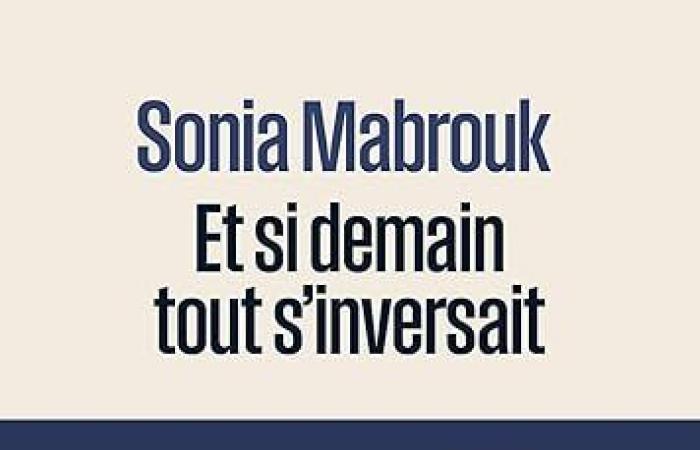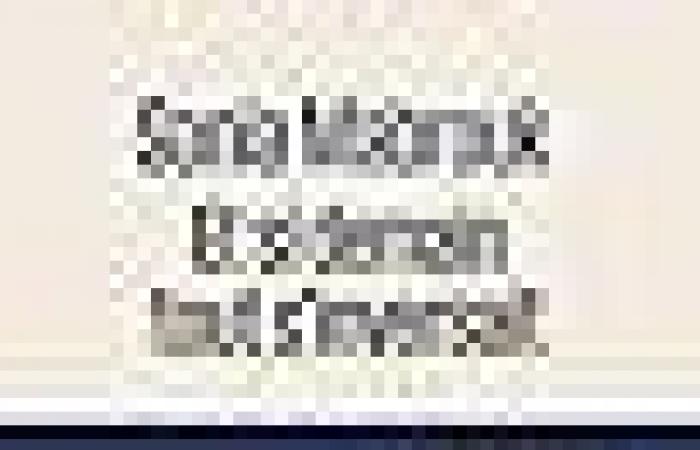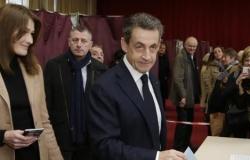What if tomorrow everything was reversedasks Sonia Mabrouk. And if tomorrow Europeans landed en masse on the coasts of North Africa, would they adapt to the customs of host countries by converting to Islam? Would they deny their identity, as some already do in their own country?
Today, the strongest manifestations of patriotism are found among certain recent French people: born abroad then naturalized or born in France into families with an immigrant background. They do not have a monopoly on the heart, but perhaps on the courage to state the obvious that the native French brush aside or hide for fear of the consequences.
These new French people know the realities of the world, starting with its ugliness and systemic intolerance. They know what an Arab, a Pakistani or a Fulani is. They are open to the world while the bobo imagines it instead of knowing it, he projects onto it his Rousseauist conception of human nature where kindness and fragility form the definitive horizon of history. However, he has left history and ignores it.
A long time ago, there was Romain Gary. Today, there is Éric Zemmour (his foreign origin is decisive in his commitment and his radicality). There is of course Boualem Sansal, Claire Koç, Sabrina Medjebeur, Naïma M’Faddel… And without a doubt Sonia Mabrouk.
Boat people improbables
Instead of writing an essay to crudely formulate her warning message (Wake up damn it!), she chose the novelistic form.
What if tomorrow everything was reversed relates the journey of Louise and Aurélien, a wealthy couple who decide to go into exile in North Africa. Life in France has become impossible due to the inter-ethnic civil war and incessant Russian bombings. The woman represents all that is good in France (common sense, sensitivity, love of beautiful letters and beautiful things, loyalty to the Judeo-Christian tradition); man, everything despicable (denial, arrogance, opportunism, absence of convictions). We want to slap him and ask Louise: what do you think of him, getting married and giving him a kid?
Aurélien embodies the archetype of winnerthe winner of globalization. As a physician, he thrived performing gender transition surgeries on children and adolescents. When his wife questions him about the ethics of his approach, he replies that it is about progress and that we can do nothing against progress because “he surpasses us”. He passes us and fills his bank account.
Aurélien thinks he is extraordinary. It symbolizes an era where technical ultra-specialization determines social ascension while general culture has lost its letters of nobility. Aurélien simply does not have the means to understand that he risks disappearing, and his country with him, if he does not behave like a man!
Double Healthy Path
Sonia Mabrouk addresses all the Auréliens of France with the subtlety and finesse that are her signature. It places the reader in a hypothetical scenario, so improbable that it disarms the resistance of those who take any reference to reality as a micro-aggression.
Who could imagine that the French, and Europeans in general, would take the path of exile? Let them be reduced to the rank of boat people ransomed by smugglers and mistreated by the coast guards of Arab countries? Who could believe that Arab populations impose conversion to Islam on them without “right to be different” or “hands off my friend”?
Also read, Gilles-William Goldnadel: ABC of wrong-way morality
This scenario is not new. The Mediterranean has always been a dual carriageway. Not long ago, Spanish Republicans fled Franco to Morocco, Algeria and Tunisia. Before them, other Spaniards repopulated Orania in the 19th century.e century, hoping to find refuge there from poverty and scarcity. At the margins, Germans tainted by Nazism settled in Egypt after 1945. If we open the focus further, we see similarities between Sonia Mabrouk’s scenario and the great migration of Jews expelled by Isabella the Catholic in 1492, shattered in several diasporas from the Maghreb to the Levant.
Has Sonia Mabrouk read Jean Raspail?
What if tomorrow everything was reversed poses several essential questions, the first being that of courage. The courage to see the identity challenge facing France. The courage to admit that a society has no chance of surviving if it cannot gain respect at home. The courage to recognize that a country without soul, with men without content, is doomed to disappearance.
We cannot fail to draw a parallel between the approach of Sonia Mabrouk and The Camp of the Saints by Jean Raspail, published fifty years ago. Both start from the principle that Islam is capable of saying no, of refusing difference. In Raspail’s book, the miserable hordes coming from India receive a refusal in the Muslim countries which divert them towards France. In Sonia Mabrouk’s novel, the countries of the Maghreb condition their welcome on the abandonment of European identity. Both believe that Europe is sick and that its evil is moral, only moral.
The similarities end there, because Jean Raspail no longer believes in Christian morality. He thinks that it is destroying Europe, which loves foreigners more than itself. Sonia Mabrouk seems to be calling for a return to Judeo-Christian identity, not as a spiritual awakening stricto sensu, but a sort of vaccine against the ongoing cultural suicide.
Finally, your humble servant, citizen of a southern country, cannot help but push the exercise initiated by Sonia Mabrouk further. What if these hundreds of thousands of Europeans forced to convert to Islam in exchange for the right to asylum were the salvation of the countries of North Africa? These newcomers would have the same beneficial impact that Algeria’s pieds noirs had in the 1950s, when the country had a real chance to take off. Impregnable black feet, because they are Muslims and assimilated… And if the renewal of the land of Islam depended on the mass arrival of converted Westerners bringing the work ethic, confidence in progress and love of ‘innovation ?
Enough to write another fiction. Its title would be The Arab Spring.
Sonia Mabrouk, What if tomorrow everything was reversedFayard, 2024.









